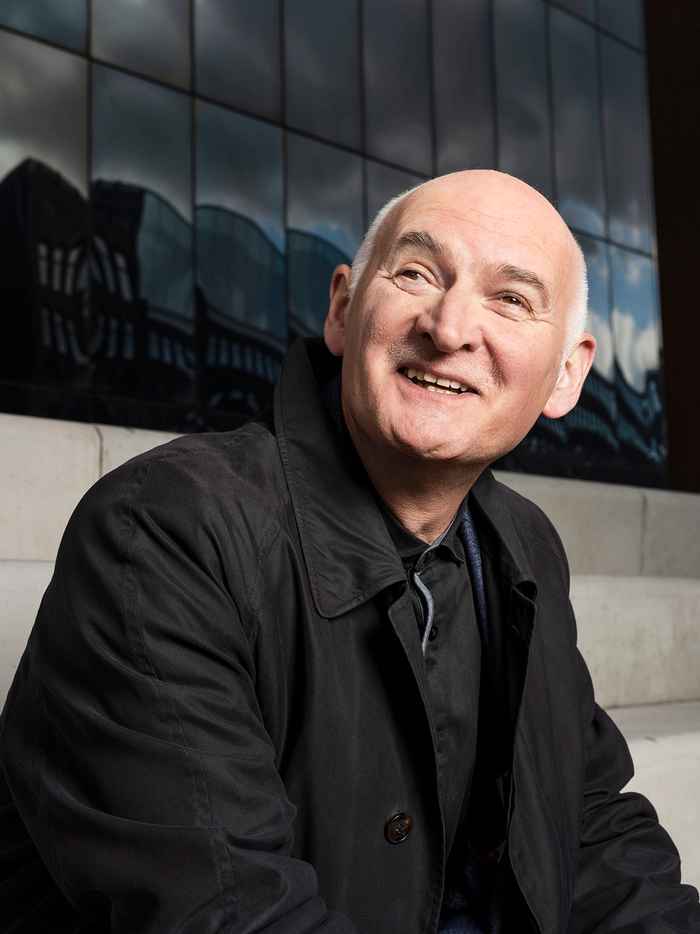Remieg Aerts

Who? Remieg Aerts (1957)
Studied: History in Groningen. Electives: art history, Dutch, museum studies
First job: Assistant professor in Philosophy of History at the University of Groningen
Favourite spot at the UvA: The Bushuis, on the Kloveniersburgwal
Remieg Aerts (1957) is a professor of Dutch History. While he briefly considered Chinese after secondary school, Remieg ultimately made a considered decision to study History. The latter programme appealed to him because it offered broad insight into how the state, society and culture are organised. He then went on to gain over fifty years of experience working at various universities. Today, he conducts academic research into broad societal topics and teaches at the Faculty of Humanities, both at the UvA.
What do you like best about your field?
‘It teaches people to view things in the proper perspective. Everyone always thinks that the period they live in is really special. That today's crisis is the worst one ever. Only by placing recent developments in a historical perspective is it possible to evaluate whether they are truly new and momentous, or just another phase in a transitory process that has been seen countless times before. Another important lesson history can teach us is how to take a step back from your own temporal context. In the past, everything was different: people thought differently and things worked differently. This teaches you to have greater understanding, in a multicultural society, for the fact that things can be fundamentally different, and organised based on other values. The long-term perspective of history is the best lens through which to examine today's society.’
Academic thought isn't some trick, it's a way of life.
Does that mean history is more important than we think?
‘I'd have to answer that question with a resounding yes. The Humanities are enormously underrated in terms of their importance. Humanities are about the shared values we create and enforce. The likelihood that new products or technologies will succeed is strongly dependent on cultural contexts, which we can learn to understand through the study of humanities. Food technologists can develop fantastic solutions to the world's serious food-related problems: new seeds, modified products that are resistant to fungus, and so forth. These solutions can only be effective if you understand why people in certain cultures are open to eating certain things, or not, and what kind of status and value they assign to the rituals around food.’
The long-term perspective of history is the best lens through which to examine today's society.
You have experience at a great many universities. How does the UvA rate?
‘I realised the other day that I've now had some fifty years of experience with what goes on at universities. First at home, then as a student and now via my own work. I transferred from Radboud University in Nijmegen to the UvA fairly recently, in 2017. I feel a certain affinity for Amsterdam and the UvA. The Faculty of Humanities at the UvA is a large, stimulating faculty that offers a great many possibilities and a great deal of expertise. In Nijmegen, the arts and humanities faculty was smaller and ultimately, I found myself fairly tightly constrained within the political history discipline. I was eager to explore broader societal topics, and I can do that better from here. Compared to other universities, the UvA is bigger, freer and more daring. It's also more chaotic and yet, miraculously, still organised in many ways. One advantage, of course, is that the UvA is in Amsterdam along with a myriad of other knowledge and cultural institutions, scientific institutes and businesses, all of whom are connected with the university in one way or another. This places the UvA near the heart of societal debates and means the media are always close by, which makes the university a highly interesting place.’
The UvA is positioned near the heart of societal debates and the media are always close by, which makes this an interesting place to be.
So are UvA students different than other students?
‘In some ways, UvA students are bolder and more brazen than other students. They're less ashamed to be late to lectures and can't be bothered to offer an excuse or apology when it happens. They're also bolder about expressing strong opinions, both in class and on social media. This means that incidents in the classroom are more likely to be made public and therefore become cause for discussion. Attending university has taught me a certain mindset, an attitude that doesn't stop when I leave work. It's not like some trick you pick up: it's a way of thinking about the world. I hope I'm able to pass that type of thought along to my students.’